EQ stands for Emotional Intelligence, also known as Emotional Quotient. It’s the ability to understand, manage, and use one’s own emotions, as well as recognize and respond to the emotions of others. Essentially, EQ is about being smarter with feelings.
Boost Your EQ – Practices for Success
Ever wonder why some people navigate life’s ups and downs with grace, nailing their goals and building strong relationships, while others struggle to stay afloat? The secret often lies in emotional intelligence (EQ)— your ability to understand and manage emotions, connect with others, and make smart choices under pressure.
Unlike our past dives into breaking free from mindset traps, this post is all about proactively building skills to boost EQ and unlock your potential for success.
Picture yourself leading with confidence, defusing conflicts with ease, and thriving in every area of life, all through simple daily habits fueled by mental discipline for success.
What Is Emotional Intelligence (EQ)?
Emotional intelligence, or EQ, is all about understanding your own emotions, keeping them in check, and picking up on what others are feeling to build better connections. It’s like realizing you’re annoyed after a rough work call, figuring out why, and choosing how to respond instead of just reacting.
EQ also means noticing a friend’s mood when they’re quieter than usual or handling a tricky talk with your boss. To boost EQ, you practice habits that make these skills stronger, helping you navigate life with confidence and ease. Whether you’re aiming to lead at work, deepen friendships, or feel more in control, EQ is your secret weapon.
These 7 daily practices, powered by mental discipline for success, will help you boost EQ and thrive in every part of your life.
1. Practice Mindful Self-Awareness
To boost EQ, start by checking in with your emotions like you’re catching up with a buddy. Self-awareness is about noticing how you feel, like when you’re annoyed because a coworker keeps interrupting you, and figuring out what’s behind it. Maybe you’re feeling ignored or stretched too thin. Taking a moment each day to tune in can make a big difference.
Imagine kicking off your morning with a quiet minute, maybe over coffee, thinking, “What’s my vibe today?”
Try setting aside 5 minutes each morning to sit still, take a few deep breaths, and name what’s going on inside. Are you stressed? Excited?
Write it down in a notebook, like “I’m kinda nervous about that meeting.” Over time, you’ll spot patterns, like getting cranky when you’re tired, so you can choose to stay calm, such as taking a breather before a big family dinner.
- Pro Tip: Keep a small notebook handy to jot down one feeling each morning. It’s like a quick check-in with yourself.
- Try This: For a week, take 5 minutes every morning to name how you’re feeling and write down what might be causing it.
2. Regulate Emotions with the Pause Trick
Ever said something when you’re upset and wished you could take it back? To boost EQ, work on keeping your cool by practicing emotional regulation. It’s about not letting a tough moment, like getting a snarky email from a colleague, ruin your day. A great way to do this is the “pause trick.” When you feel your emotions spiking, such as during a heated argument, just stop.
Take three slow breaths, count to five, and let the intensity settle. It’s like hitting a mental reset button, giving you a chance to respond calmly, maybe saying, “Can we talk this out?” instead of snapping.
Try this daily in small moments, like when you’re irritated waiting for your takeout order. The more you practice, the easier it is to stay steady in bigger situations, like a tense work meeting. This habit builds emotional strength, helping you handle whatever comes your way.
- Pro Tip: Stick a note on your phone that says “Pause and Breathe” to remind you to use this trick when things get heated.
- Try This: For a week, pause and take three breaths before reacting in one emotional moment each day, like when you’re frustrated.
3. Cultivate Empathy Through Active Listening
Empathy is a big part of EQ. It’s all about really understanding how someone else feels, like noticing a friend’s stress when they talk about their job. To boost EQ, try active listening, where you give someone your full attention during a conversation.
Picture your coworker venting about a tough project. Instead of zoning out or jumping in with advice, really listen. Nod, look them in the eye, and repeat back what you hear, such as, “Sounds like you’re really overwhelmed with this.” This shows you care and helps you catch their emotions, like a hint of worry in their voice, building a stronger connection.
Practice this once a day, maybe during a chat with a friend or a work huddle. It’s not just about their words—it’s about feeling their mood, like sensing they’re tense. Over time, you’ll get better at reading people and creating trust, which is key for relationships and success.
- Pro Tip: Before a conversation, remind yourself, “Just listen, don’t fix.” It keeps you focused on their feelings.
- Try This: For a week, really listen in one daily conversation, repeating back one thing they said to show you’re with them.
4. Strengthen Motivation with Gratitude Journaling
Staying motivated, even when things get rough, is a huge piece of EQ. To boost EQ, try gratitude journaling to keep your energy up and your eyes on your goals. It’s as simple as writing down three things you’re thankful for each night, like a kind text from a friend, a good meal, or finishing a small task.
This isn’t about pretending life’s perfect. It’s about spotting the bright spots, like appreciating a laugh with a coworker after a tough day. Be specific, like, “I’m thankful for my dog’s cuddles because they cheered me up.” This keeps you focused on what’s possible, pushing you through challenges like a demanding work week.
This habit is like fueling your inner drive. It’s especially helpful when you’re feeling low, reminding you there’s always something to keep you going, whether it’s a big dream or a small win.
- Pro Tip: Stash a notebook by your bed to make gratitude journaling a cozy part of your wind-down routine.
- Try This: For a week, write down three things you’re thankful for each night, noting why they make you smile.
5. Build Mental Discipline for Success
To boost EQ, tap into mental discipline for success. That’s about training your mind to stay focused, steady, and ready to handle life’s emotional twists. It’s like choosing to take a deep breath when you’re stressed instead of losing it.
This discipline helps you manage your feelings and stick to your goals, whether you’re aiming for a new job or just want to feel more balanced. One way to build it is visualization. Spend 5 minutes each morning imagining yourself nailing your day, like staying calm in a big meeting or having a great catch-up with a friend.
Another trick is habit stacking. Link a new EQ habit, like journaling, to something you already do, like sipping your morning coffee. This makes it easier to keep up, which is the secret to emotional mastery. Over time, this discipline makes you someone who tackles life’s ups and downs with confidence.
- Pro Tip: Try a 25-minute focus session for one daily task, like answering emails, to flex your mental discipline.
- Try This: For a week, visualize a great day for 5 minutes each morning and see how it shapes your mood.
6. Enhance Social Skills with Assertive Communication
Awesome social skills are a must to boost EQ, helping you connect with others clearly and kindly. Assertive communication is a great habit. It’s about sharing what you need without being pushy or shrinking back.
Imagine you’re swamped at work. Instead of staying quiet or getting mad, you could say, “I’m feeling a bit overwhelmed. Can we sort out what’s most urgent?” This uses “I” statements to own your emotions, keeping things smooth and effective.
Practice this daily in little ways, like telling a friend, “I’d love to pick a movie together tonight.” It builds confidence and cuts down on mix-ups, making you a pro at handling talks, whether with a coworker or a loved one.
- Pro Tip: Practice one “I” statement in front of the mirror each day, like “I need a sec to think,” to feel natural saying it.
- Try This: For a week, use an “I” statement in one daily conversation, like sharing how you feel about a decision.
7. Reflect and Adjust with Evening Check-Ins
Reflection is like a superpower for EQ. It helps you learn from your day and keep getting better. To boost EQ, spend 10 minutes each evening thinking about how you handled your emotions. Ask yourself, “What went great? Where did I trip up?” Maybe you stayed cool during a work call but got snappy with a roommate.
Write down what set you off, like being hungry or stressed, and think of one small change for tomorrow, such as taking a quick walk when you’re tense.
This habit is like sharpening your emotional skills every day. It helps you notice patterns, like getting edgy under pressure, and plan how to do better, making you more aware and flexible over time.
- Pro Tip: Use a simple journal setup: “Today’s Wins, Today’s Challenges, Tomorrow’s Plan” to make reflecting easy.
- Try This: For a week, reflect for 10 minutes each night, noting one emotional win and one thing to tweak.
Conclusion
You’re not just chasing goals. You’re building a life full of connection, strength, and unstoppable energy, and boosting EQ is your key to making it happen. These 7 daily habits, from checking in with your emotions to listening with heart, give you the tools to boost EQ and own every moment. Start small: try a quick gratitude list tonight or pause before your next big reaction.
With mental discipline for success, you’re creating a future where you lead, connect, and live with confidence. Join the Mental Discipline for Success community to keep growing with others. Your EQ journey is kicking off. Go make it epic!
FAQs About Boosting Your EQ
Waiting for change can be tough, but you’re doing amazing just by trying! EQ grows like a plant, needing a bit of time to show results. If you’re not feeling it yet, check if you’re sticking with one habit, like writing down what you’re thankful for every night. Maybe pop a fun reminder on your fridge to stay on track. Look for small wins, like catching yourself before you snap. That’s progress!
Absolutely—you can improve it. While some people might naturally pick up on emotions more easily, EQ is a skill, not a fixed trait. Just like learning to cook or drive, emotional intelligence improves with practice. Things like self-awareness check-ins, active listening, and the pause technique actually rewire how you respond emotionally over time. If you’ve ever caught yourself before snapping or recognized your stress before it exploded, that’s growth already happening. The key is consistency and mental discipline for success—because change doesn’t happen overnight, but it does happen.
When emotions hit hard, the fastest tool is the pause technique: stop, take three deep breaths, and count to five. It sounds simple, but it works like a reset switch for your brain. This gives your nervous system a chance to cool off before you react. Over time, this habit builds the emotional muscle that keeps you steady under pressure. Pair it with daily reflection at night to learn from emotional slip-ups, and you’ll notice real progress in how you handle stress, frustration, or conflict.
EQ is like the secret language of strong relationships and smooth teamwork. At work, it helps you read the room, manage stress, handle feedback, and lead with empathy. In relationships, it’s what helps you understand your partner’s silence or navigate a disagreement without blowing up. It all comes down to recognizing emotions (yours and others’), managing reactions, and responding wisely. When you commit to practicing EQ—especially with mental discipline for success—you’ll notice more trust, less drama, and better outcomes in every area of your life.
Starting something new can feel like a big leap, but you’re already awesome for being curious! Pick one easy habit, like taking 5 minutes in the morning to think about how you’re feeling. It’s like checking in with yourself, no pressure.

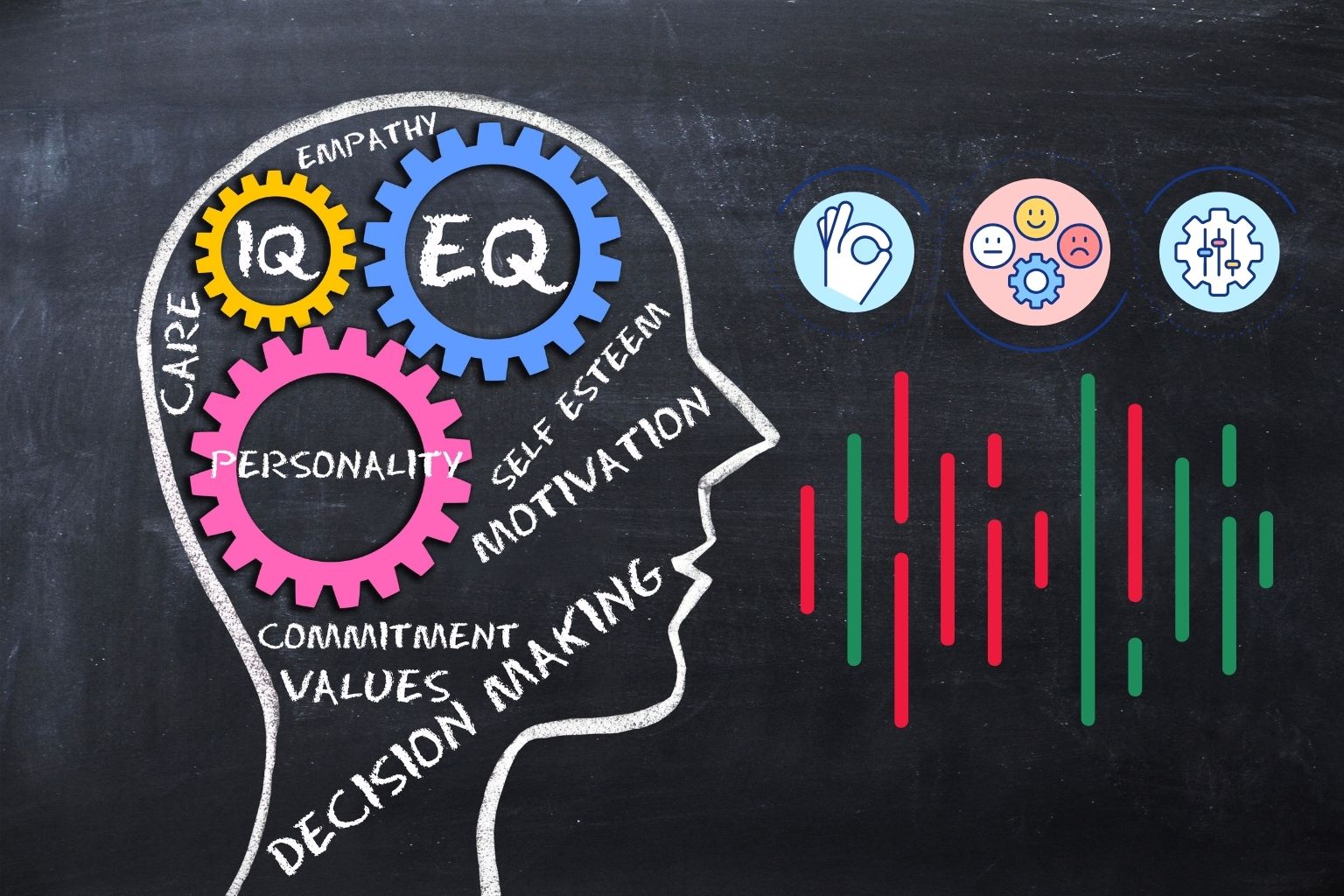
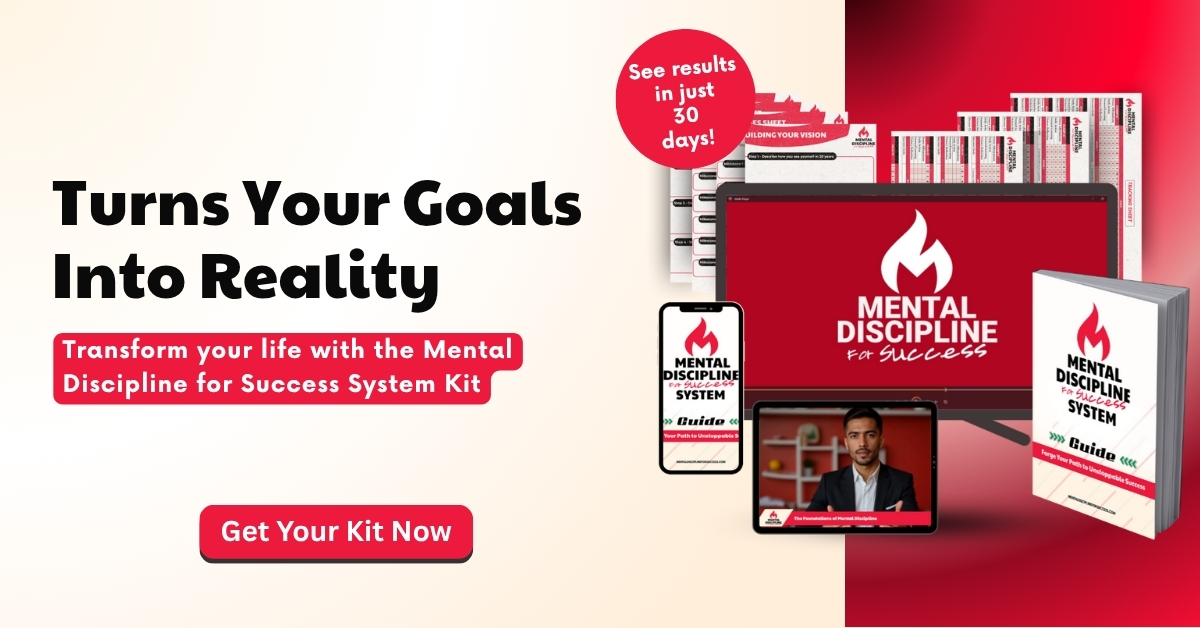
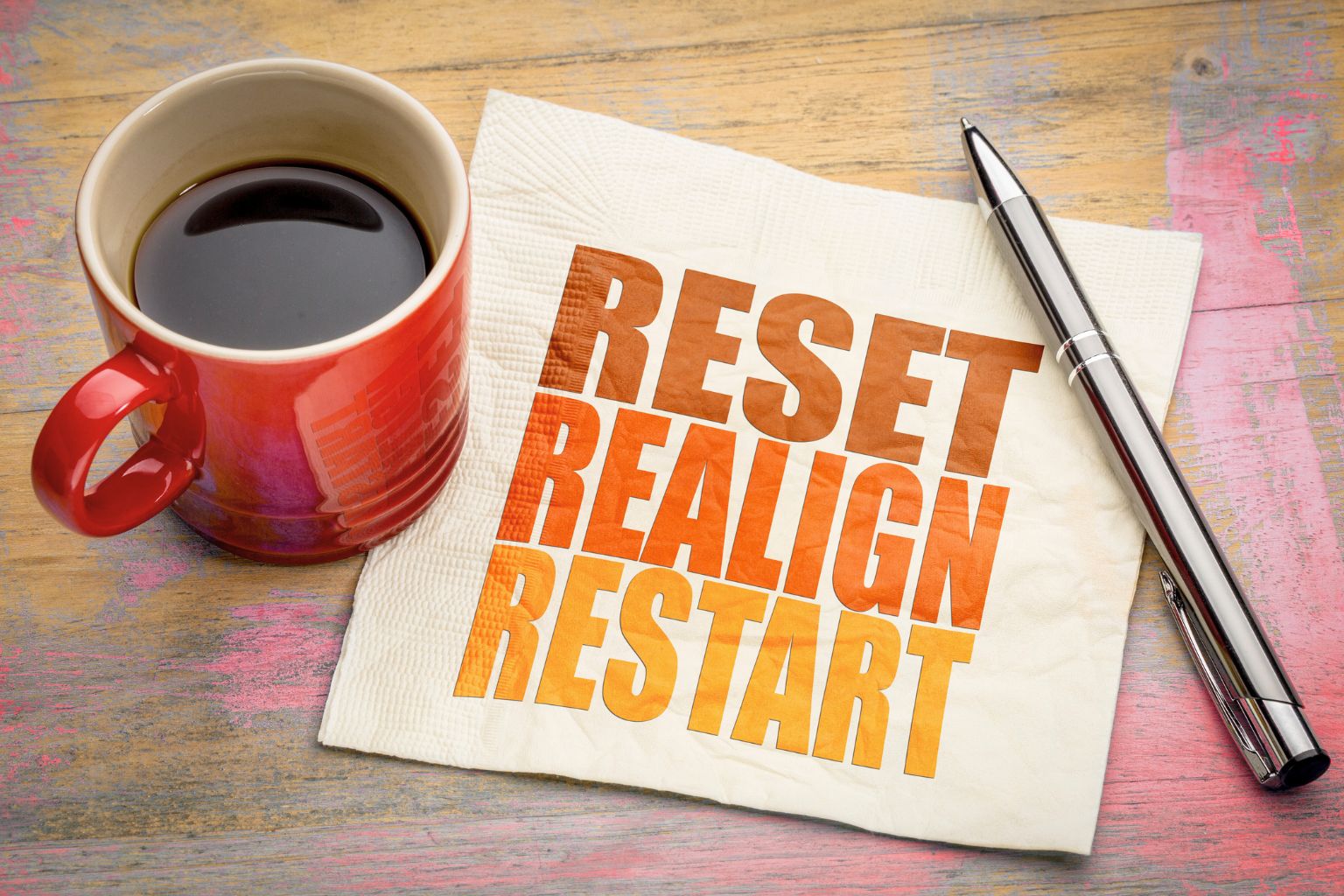
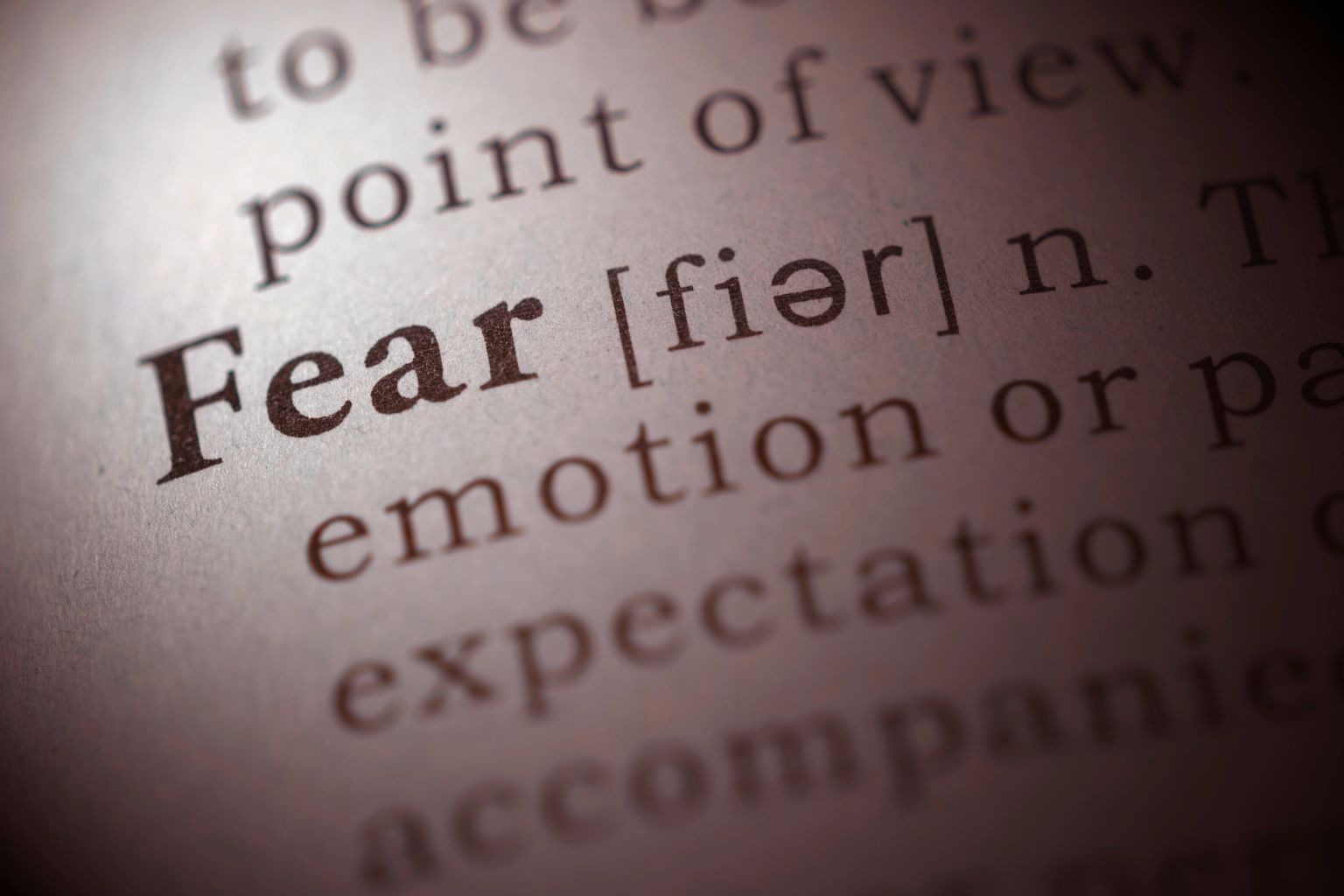
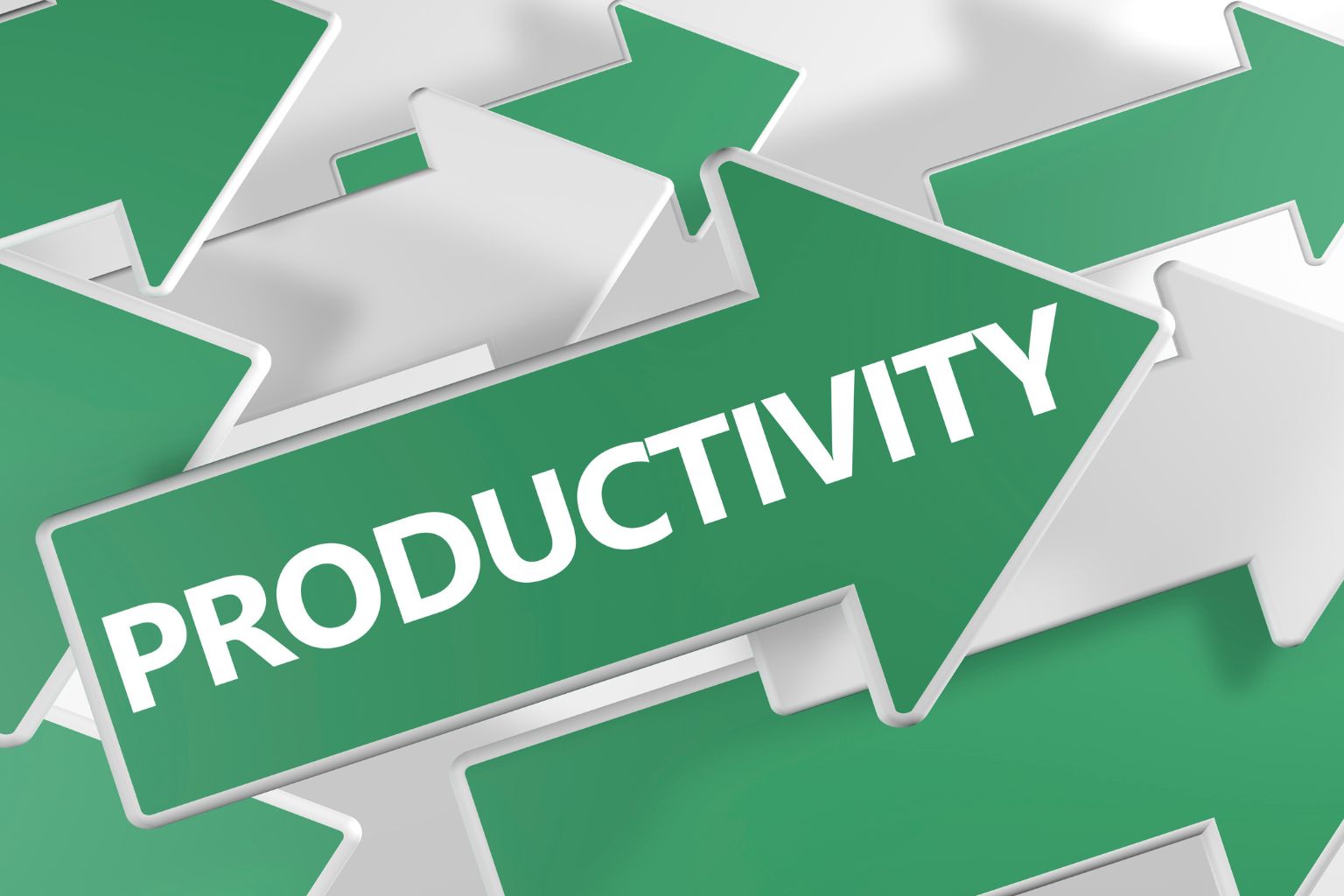


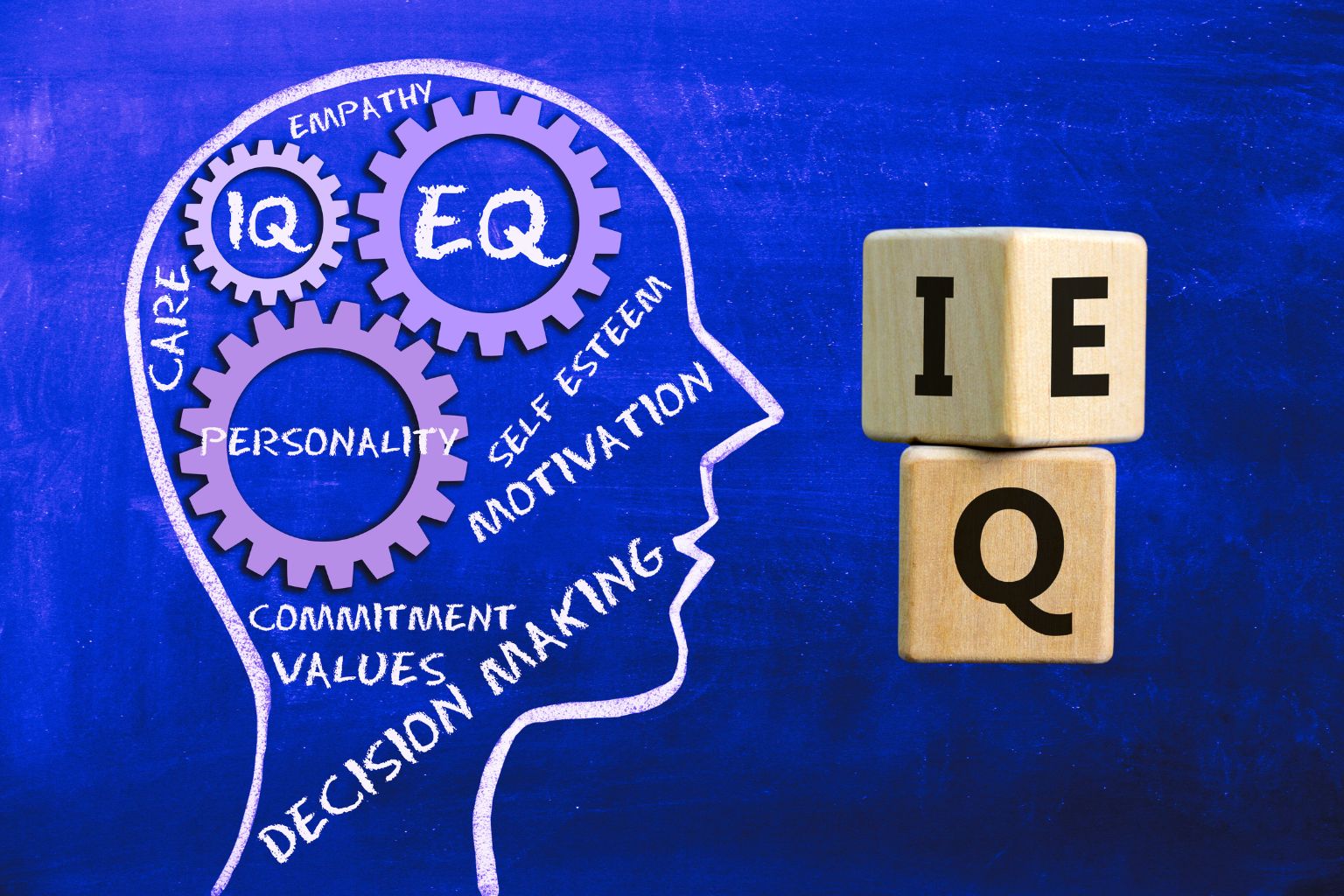

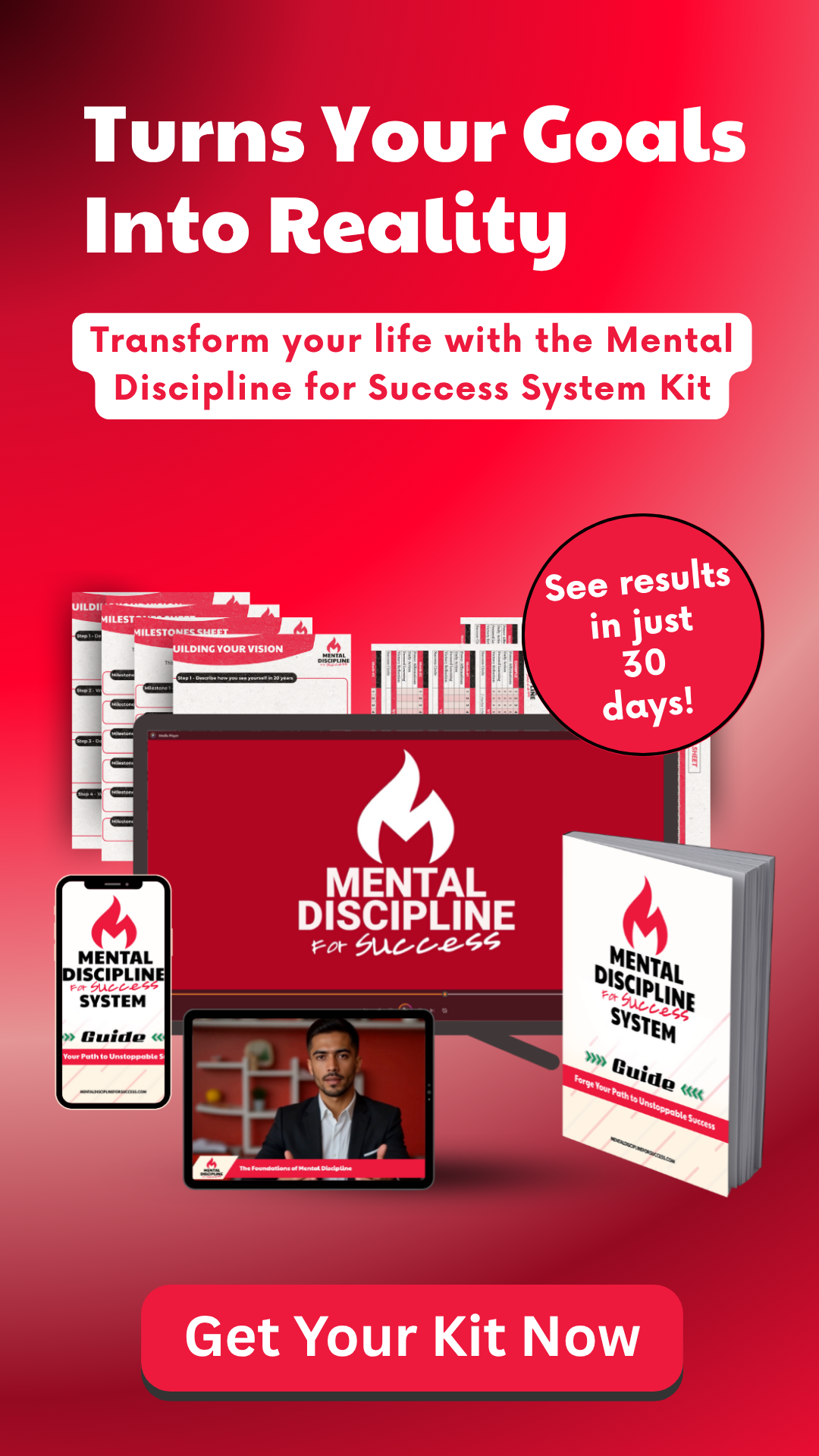
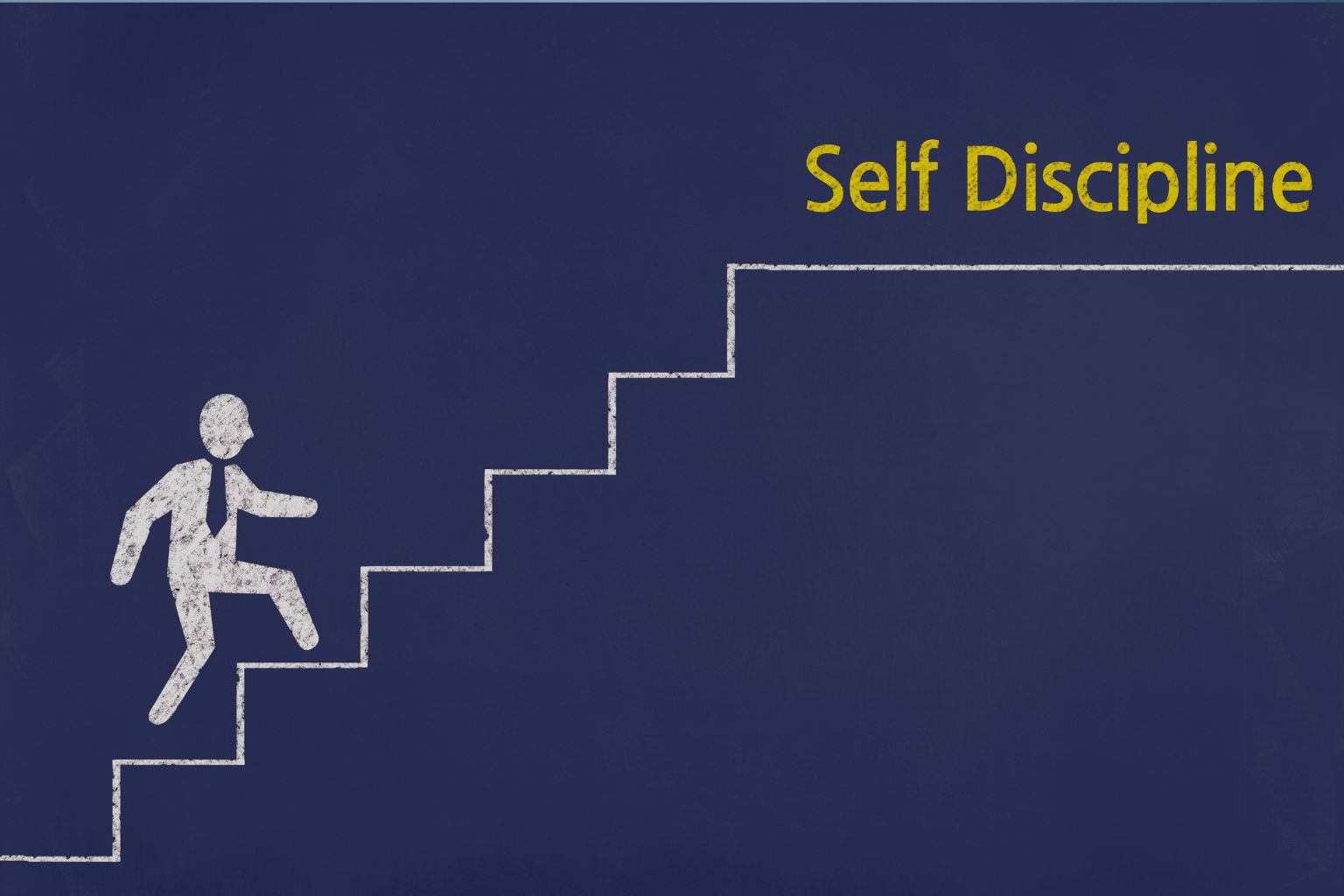
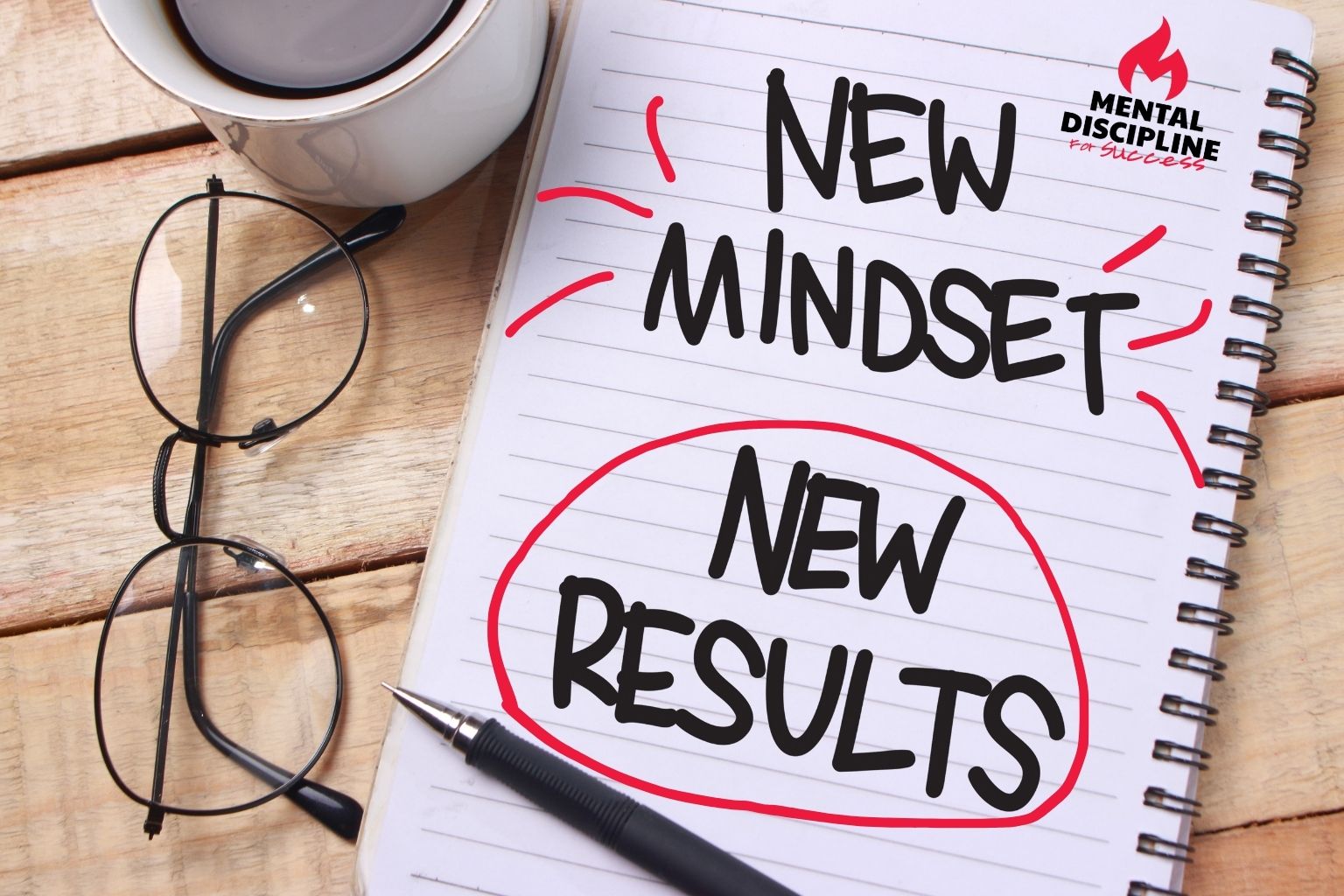
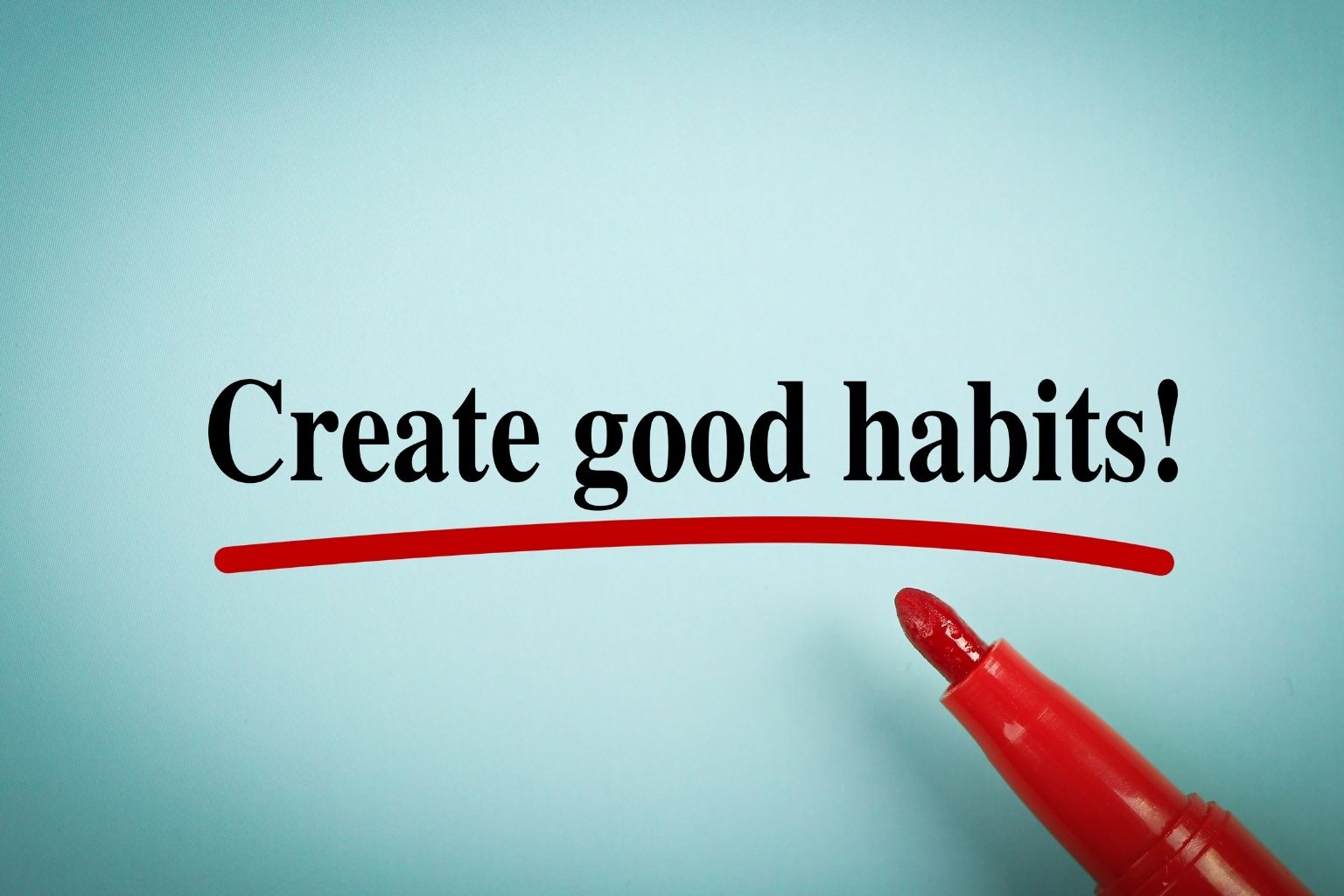

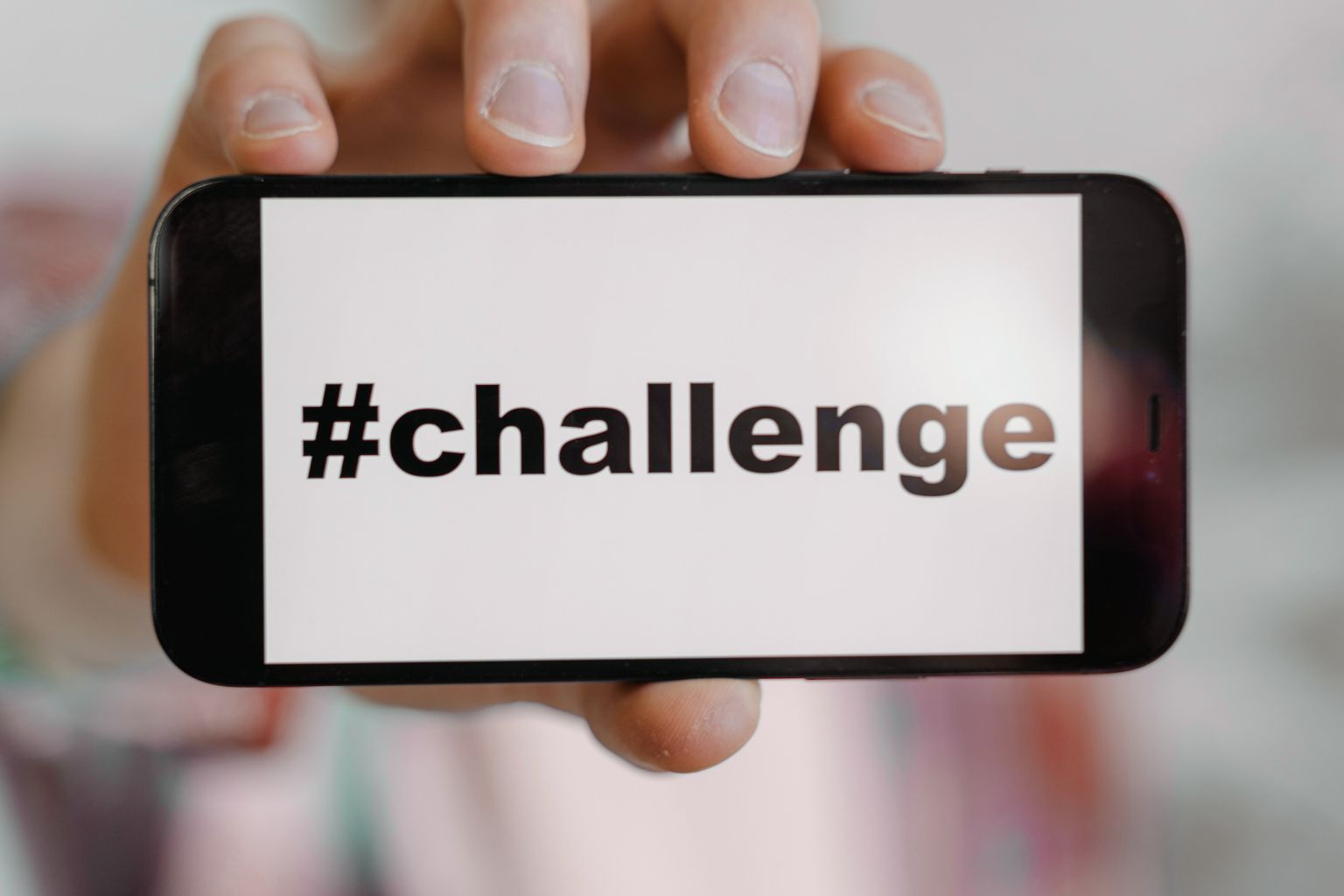

Share it!